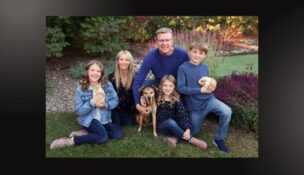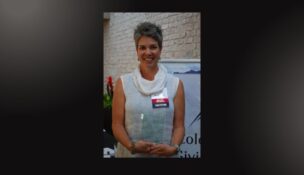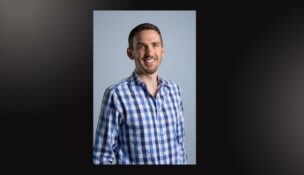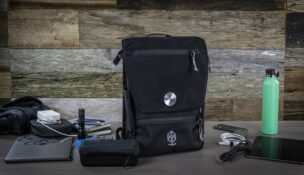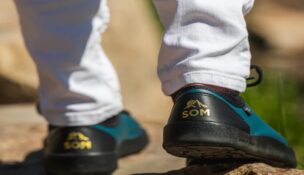3 Colorado startup founders share the best (and worst) pieces of advice they’ve been given
Here's hoping these tips help others on their journey as an entrepreneur
Randall Hartman //August 31, 2020//


3 Colorado startup founders share the best (and worst) pieces of advice they’ve been given
Here's hoping these tips help others on their journey as an entrepreneur
Randall Hartman //August 31, 2020//
Working in the creative agency space in Denver for the past 10 years, I have seen every type of startup come across my desk: From the side-hustle, bootstrapped, get-rich-quick idea that rarely pans out, to the pre-funding, groundbreaking idea that ends up receiving millions in investments through multiple rounds of funding.
There is an interesting characteristic we find in the latter: they understand that there is no “standard;” no steps that are written in a book or mentioned in some keynote that will lead to instant success.
If there was a standard formula that led to success of a startup, every single startup would be successful—but the reality is quite the opposite. Most startups fail and the ones that succeed have battle scars and war stories that should act as scripture for those looking to follow in their footsteps.
In Colorado alone, billions of dollars in funding have been granted to varying businesses since 2015. We recently spoke with two local startup founders that have received pieces of that pie, and asked them about the best and worst advice they received in their early stages, in hopes that it will help others on their journey as an entrepreneur.
Denver native Matt Talbot, CEO of local field management software GoSpotCheck, went through the Boulder Techstars program in 2011. As GoSpotCheck started scaling, they met with a mentor who “opened their eyes,” Talbot relayed to us, “to the fact that getting the people right, and having processes in place to develop and grow our people, was the most important thing. We ended up taking his advice and building out a People and Culture team, and it changed the trajectory of our company.”
Adversely, Talbot’s worst piece of advice came from a Fortune 50 C-Level executive who encouraged them to hire a COO that would’ve come at a very high cost. Talbot explains “he was so used to having a full staff around him to execute the day-to-day that he couldn’t relate to an early stage startup.”
Bob Paulsen is the Founder and CEO of PlayerLync, a learning management software (LMS) that closed a series B round for $12.5 M in 2019.
Paulsen’s best advice he ever received was to spend more time “listening and understanding your customers’ problems” and less time “focusing on their ideas for solutions as they are often based on other existing technologies already out there.”
He goes on to describe his relationship with early clients. Through his listening, he was able to “create the most logical pricing and packaging possible based on the value [their customers] saw in [the businesses] solutions.”
However the worst piece of advice he received was to start a company solo so that he can retain 100% of ownership, “that way, you don’t have to gather buy-in or gain other people’s opinions, and you get to keep all of the value created.”
Paulsen explains that, fortunately, he did not take that advice and emphasizes that “starting a business is really hard, and full of pitfalls and pivots.” He also stressed that “if you are going to win big there’s plenty to go around, and the way to win big is through a team that is engaged and feels pride in ownership.”
As I write this I think back to my first day as a company, sitting at my desk with zero clients saying to myself, “Groundwrk is open for business.” I look back now and that seems terrifying but there has not been one second of one day that I regret it.
The best advice I’ve ever received was from my long time business coach Brenda Abdilla. She encouraged me to journal in whatever way worked for me. No guidelines, no requirements, just journal. My journal keeps me organized, grounded, and grateful.
The worst piece of advice came from an old boss of mine at a creative firm here in Denver. In response to me bringing to her attention the use of the same creative for different accounts she said “if it works don’t fix it,” similar to the adage “if it ain’t broke don’t fix it.”
While this is true for car transmissions and air conditioners, this is an excuse for lazy creative. To this day I use both the advice I did and didn’t take as fuel for each project that flows through Groundwrk.
While each story is different, these stories tell an important truth. It is important to take advice and to ask questions, but when it comes down to it, you have to make the right decision for your company—even if that means going against the advice of your most trusted mentors.
Randall Hartman is the Interactive Director and Founder of Denver-based website and branding agency Groundwrk. Hartman has been leading web design and development projects since 2011 with clients such as Frontier Airlines, RE/Max, GolfTec, The Boppy Company, Air Methods, and hundreds of additional small to midsize businesses. He is currently an associate board member for Project Helping, a non-profit dedicated to suicide prevention, and donates 1% of all company revenue to local non-profits. In his free time Randall can be found posting an incredibly high score on the golf course or hanging out with his 120 lb pup, Charlie.






